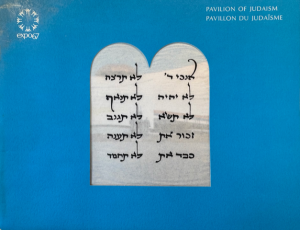While the crisis in Ukraine continues to unfold, Jews in the disputed region of Crimea have been caught in a battle over nationalism. Like many minority groups in the area, Ukrainian Jews fear for their safety and their future amid the heightened tension.
“The main action in Crimea was taking place right across the street from our synagogue,” said Rabbi Yitzchok Meyer Lipszyc, who has been a Chabad-Lubavitch emissary in Simferopol, the capital of Crimea, for more than two decades.
“There were demonstrations with over 30,000 people. The protestors were pro-Ukrainian. But eventually the ones who took over were in the unidentified uniforms—they were obviously Russian military. There was Cossacks there too; for Jews that was a bit scary because of their history in the pogroms,” he told JNS.org.
Lipszyc was forced to leave Crimea with his wife Leah.
“For the last 22 years under the Ukrainian government, everything has been going very well. When this situation began, it turned things upside down. We were told by Chabad headquarters to get out and we barely made it out. My wife in fact got the last two tickets on a train out of Simferopol on the night before everything got sealed off by the Russians (Feb. 27)," he said.
In Sunday's Crimea referendum, 95.7 percent of the voters in the Ukrainian peninsula voted in support of annexation of the area by Russia.
Sam Kliger, the American Jewish Committee’s director of Russian Jewish community affairs, told JNS.org that according to international law and most Western observers, the referendum was illegitimate.
"Russia, however, considers it legitimate, referring to the Kosovo case, to the will of Crimean people, and to Russia’s 'obligations' to protect Russian people in Crimea. The fate of Crimea had to be decided through negotiations between Ukraine and Russia and not by force," he said.
"Then, in 1991, Crimea went to independent Ukraine because, since 1954, it was part of Ukrainian Soviet Socialistic Republic which in turn was an integral part of the Soviet Union," added Kliger. "That is why nobody really cared. As long as it was a part of the USSR, it did not really matter whether it is formally a part of Russia or Ukraine. Now Russia, using as pretext the instability created by Ukrainian revolution and imaginary 'discrimination' against ethnic Russians, just grabbed the opportunity to return Crimea to where, according to Russia, it historically belongs."






